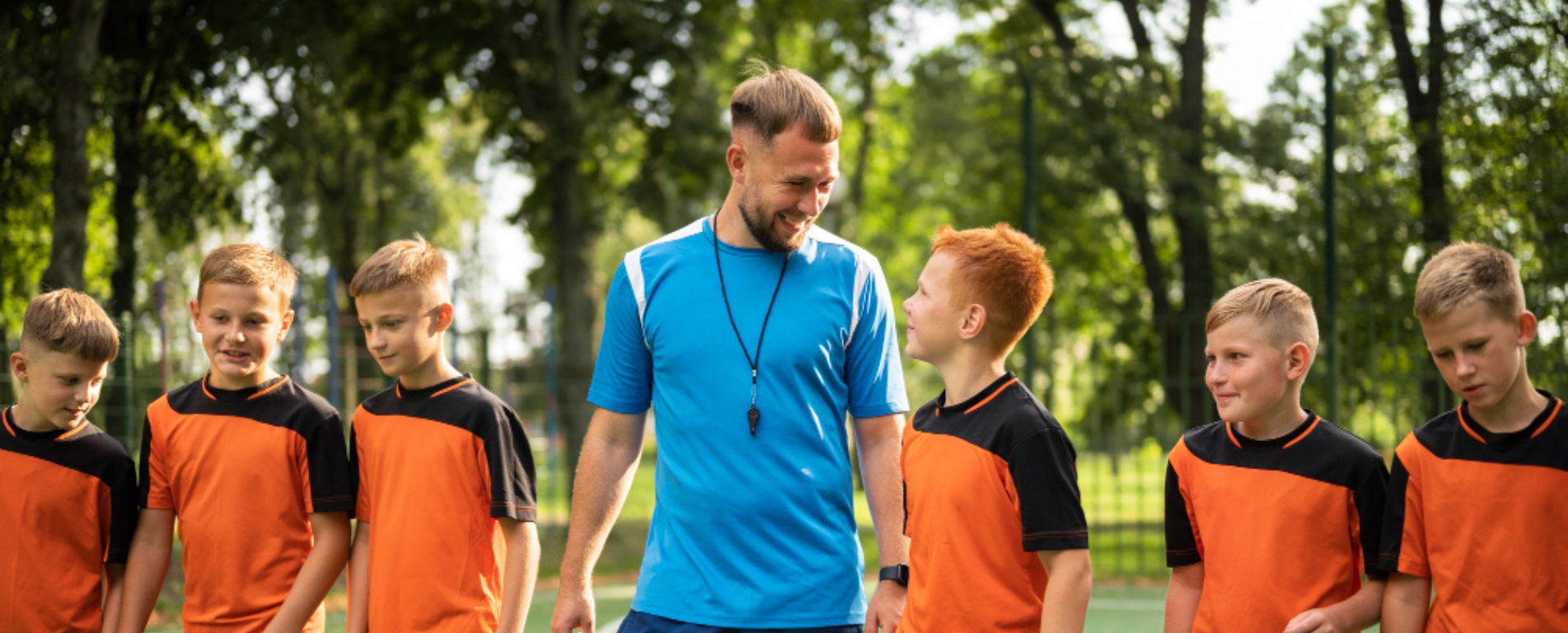In 2025, sports coaches aren’t just shouting from the sidelines. They’re under the spotlight like never before.
From high schools to the pros, performance isn’t the only thing that matters anymore. Coaches are accountable for player well-being, ethical conduct, and results on and off the field.
With social media watching every move and data tracking every play, excuses don’t cut it. Fans, parents, and athletic directors expect transparency and leadership.
If a coach can’t deliver, they’re out—fast. This isn’t the old game. It’s a new era of accountability, changing how we see coaching for good.
Zero Tolerance: Accountability For Sports Abuse
In 2025, the world of sports is no longer looking the other way.
Coaches are now being held fully accountable for abuse, regardless of the team’s size or the coach’s name. Now, there’s a clear, zero-tolerance policy for emotional, physical, and sexual abuse.
Today, every coach is required to pass strict background checks and take yearly training on abuse prevention.
Schools and organizations are setting up mandatory reporting systems and anonymous hotlines so athletes can speak up safely.
If a coach crosses the line, the consequences are immediate. We’re talking about suspensions, job loss, and, in some cases, even legal action.
And because of social media, these stories don’t stay hidden. For the offenders, bad public reputation and scrutiny are now part of the price.
Sports abuse lawyers are vital for those navigating serious allegations or seeking justice. Sports abuse lawyers help athletes and families understand their rights and pursue legal action in abuse cases.
Accountability in sports isn’t just about wins and losses anymore. It’s about safety, respect, and trust. In this day and age, there’s no room for anything less.
How To Reduce Sports Abuse?
There are several ways in which people are collectively fighting abuse in Sports. Some of the best and most effective ways are as follows:
Performance Isn’t Everything: Holistic Standards Matter
Coaching is not only about planning a winning tactic. It is also about leadership, character, and the culture created. Today mental health, inclusion, and ethical behavior are as important as game results.
New research reveals that athletes perform at their peak when coaches create an atmosphere based on respect, trust, and psychological safety, wherein anyone can voice their opinion without fear.
Performance is no longer the times of merely counting the wins and losses of athlete and staff.
The latter is indicative of a more general change: coaches are now held responsible for their impact on people, not only for scoring high numbers.
In conclusion, performance is more than statistics. Coaches are now expected to be equally committed to human well-being and environmental sustainability.
While the aim was to produce champion athletes, the emphasis should be on developing good people.
Parents, Players, And Public: The Watchful Eye Of 2025
Coaches are no longer the staff working exclusively for athletic directors; they have become the focus of attention for everyone:
- Parents.
- Fans.
- Players.
- Social media critics.
The likes of Twitter and Instagram can either turn a moment into fame or infamy in an instant.
In a result of this, coaches have to observe more stringent accountability standards than ever before.
A talk, a choice made at the sideline, or a strategy meeting can be heard, seen, and reacted to by thousands of online users in different ways.
That’s not only the case with coaches. They players have a voice as well. Athletes frequently express their views, contribute to the narrative, and influence public sentiment.
There’s a riddle in that. In 2025, public opinion has the same weight as traditional critics. The fans and the parents can become part of the conversation immediately, and the athletes’ voices are genuinely influential.
Consequently, coaches cannot just put their attention on games alone. They additionally have to manage the public perception of them while doing so.
Education, Not Just Elimination
Coaching today has evolved beyond “win or you’re out.” As the year progresses, more leagues and schools invest in their coaches’ holistic development.
Instead of being fired immediately for poor team performance or player management issues, coaches undergo conflict-resolution training, diversity workshops, and emotional-intelligence courses to help them adapt and be better equipped to support their team.
These programs give coaches the tools to handle tough conversations, understand different backgrounds, and manage emotions, so when someone makes a mistake, it’s a learning moment, not an automatic termination.
That means more chances to correct course: coaches can fix issues, apply what they learn, and improve.
Coaches can provide better support, focusing on growth rather than facing immediate dismissal. This shift promotes healthier environments for athletes and staff and helps coaches feel valued and heard.
So, instead of cutting ties at the first sign of trouble, organizations choose education and give coaches real opportunities to grow, adapt, and succeed.
How Can Sports Lawyers Help?
Now that you know exactly how sports attorneys can help you with abuse by coaches, let me tell you what are some of the other ways in which these lawyers can be of help to you. For
Here’s how they can help:
Contract Law:
Firstly, a sports lawyer can help you with contracts! To ensure fair terms and advantageous conditions, sports attorneys design and negotiate contracts for players, coaches, and other sports staff.
They manage the contracts that athletes and teams sign for sponsorships, endorsements, and other business ventures.
They help sports clubs get started and offer advice on legal issues pertaining to club management and operations.
Additionally, they safeguard the intellectual property rights of athletes and organizations, including copyrights, trademarks, and the use of names, images, and likenesses (NIL).
Resolution of Disputes:
Sports attorneys advise clients in arbitration or court cases involving contract disputes, disciplinary actions, and other difficulties.
They guarantee adherence to league and anti-doping laws, among other sports restrictions.
For injuries received while participating in sports, they assist athletes in submitting claims and lawsuits.
Your Legal Guide: Coaching Accountability Is Here To Stay
These days, coaching isn’t just about calling plays. It’s about building trust, leading with character, and being held to higher standards.
They’re expected to lead with integrity, adapt when needed, and be role models on and off the field. And if they fall short? There’s no hiding from it.
This is the new normal. Ultimately, these changes are making sports safer and more inclusive for everyone.
Read More:
















